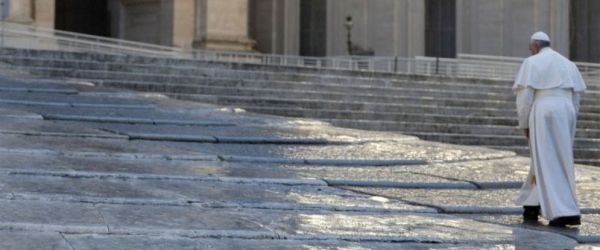3. Constant contamination by deceptive language can end up darkening our interior life. Dostoevsky’s observation is illuminating: “People who lie to themselves and listen to their own lie come to such a pass that they cannot distinguish the truth within them, or around them, and so lose all respect for themselves and for others. And having no respect, they cease to love, and in order to occupy and distract themselves without love they give way to passions and to coarse pleasures, and sink to bestiality in their vices, all from continual lying to others and to themselves”. (The Brothers Karamazov, II, 2).
So how do we defend ourselves? The most radical antidote to the virus of falsehood is purification by the truth. In Christianity, truth is not just a conceptual reality that regards how we judge things, defining them as true or false. The truth is not just bringing to light things that are concealed, “revealing reality”, as the ancient Greek term aletheia (from a-lethès, “not hidden”) might lead us to believe. Truth involves our whole life. In the Bible, it carries with it the sense of support, solidity, and trust, as implied by the root 'aman, the source of our liturgical expression Amen. Truth is something you can lean on, so as not to fall. In this relational sense, the only truly reliable and trustworthy One – the One on whom we can count – is the living God. Hence, Jesus can say: “I am the truth” (Jn 14: 6). We discover and rediscover the truth when we experience it within ourselves in the loyalty and trustworthiness of the One Who loves us. This alone can liberate us: “The truth will set you free” (Jn 8: 32).
Freedom from falsehood and the search for relationship: these two ingredients cannot be lacking if our words and gestures are to be true, authentic, and trustworthy. To discern the truth, we need to discern everything that encourages communion and promotes goodness from whatever instead tends to isolate, divide, and oppose. Truth, therefore, is not really grasped when it is imposed from without as something impersonal, but only when it flows from free relationships between persons, from listening to one another. Nor can we ever stop seeking the truth, because falsehood can always creep in, even when we state things that are true. An impeccable argument can indeed rest on undeniable facts, but if it is used to hurt another and to discredit that person in the eyes of others, however correct it may appear, it is not truthful. We can recognize the truth of statements from their fruits: whether they provoke quarrels, foment division, encourage resignation; or, on the other hand, they promote informed and mature reflection leading to constructive dialogue and fruitful results.
[Pope Francis, Message 52nd World Communications Day]












